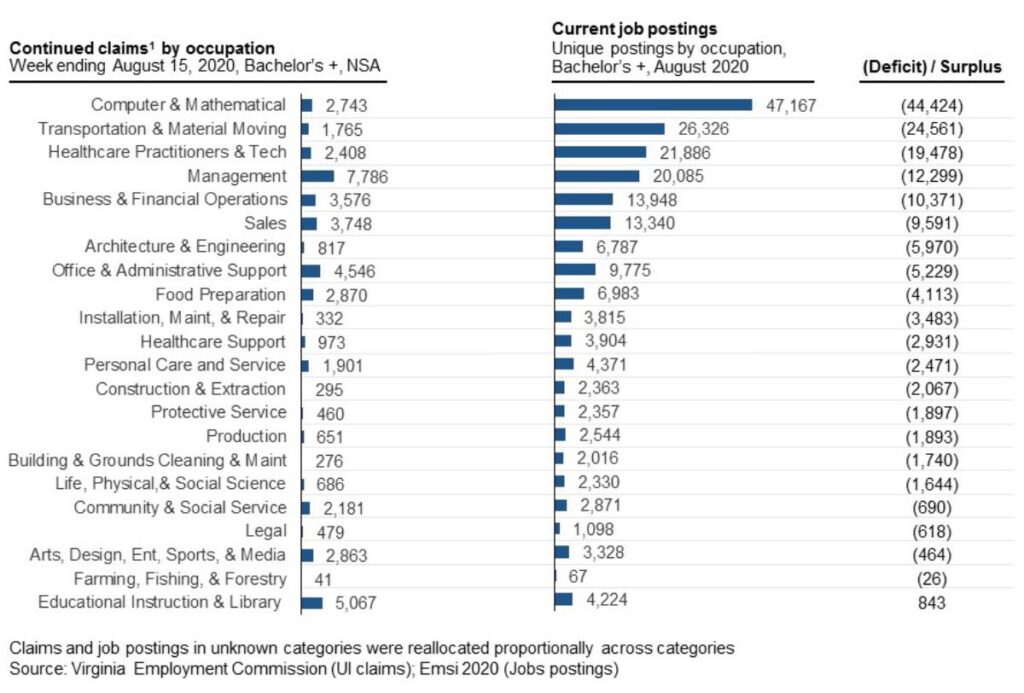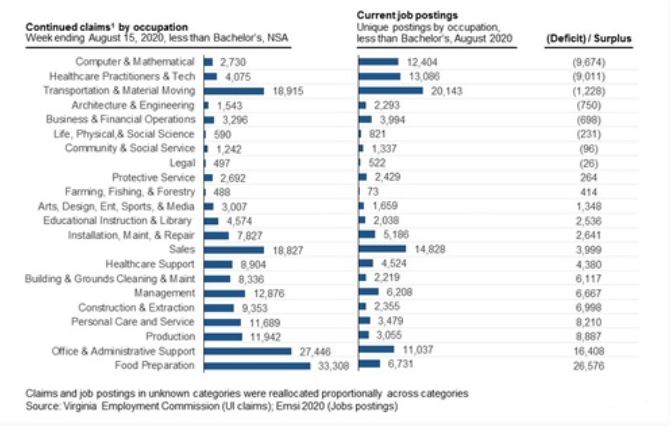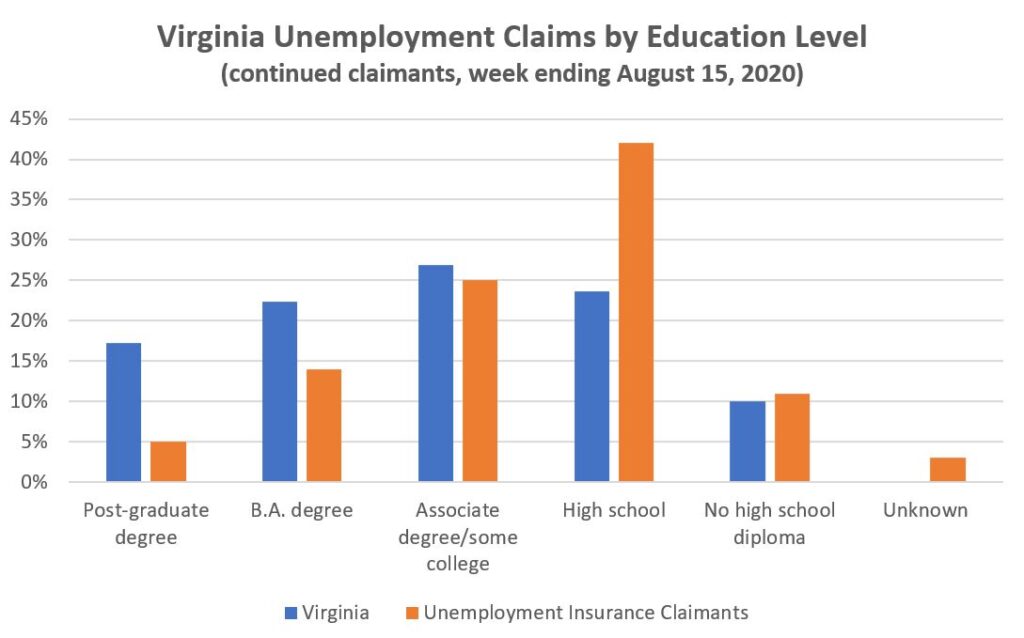Virginians with college degrees were far less likely to be laid off during the COVID-19 epidemic, and their occupations are in highest demand during the economic upturn, concludes an analysis written by the Virginia Economic Development Partnership and distributed by the State Council of Higher Education for Virginia (SCHEV).
“In order to ensure an inclusive, resilient, COVID economic recovery and continued growth across Virginia,” writes Pam Harder, managing director-strategic talent initiatives for VEDP, ” now more than ever we need to invest heavily in helping those without four-year-degrees find affordable and accessible pathways to good jobs.”
Harder makes the case that Virginia needs to “invest in education across the entire spectrum — industry certifications, state licensures, apprenticeships and certificates, as well as traditional degree programs.”


I would fully agree with the statement that the Commonwealth of Virginia needs to invest across the entire educational spectrum rather than channeling the vast majority of state funding into higher-ed institutions, predominantly four-year colleges and universities. Why should the state provide bigger subsidies to students attending four-year colleges who (a) are more likely to come from affluent families, and (b) are more likely to go into higher-paying careers? Why not spread the wealth equally to all citizens seeking to improve their workforce credentials?
Once we ask that question, it leads ineluctably to another: Why do we fund institutions rather than students? Why not say, we will give a financial assist to everybody who seeks legitimate job training, certification, or college degree? If the state stroked checks to individuals, purveyors of training, certification and college degrees might be more responsive to their needs. And if there’s one thing Virginia’s hierarchical, bureaucratic, mission creep-beset higher-ed system needs, it’s a good dose of consumer empowerment.


Leave a Reply
You must be logged in to post a comment.